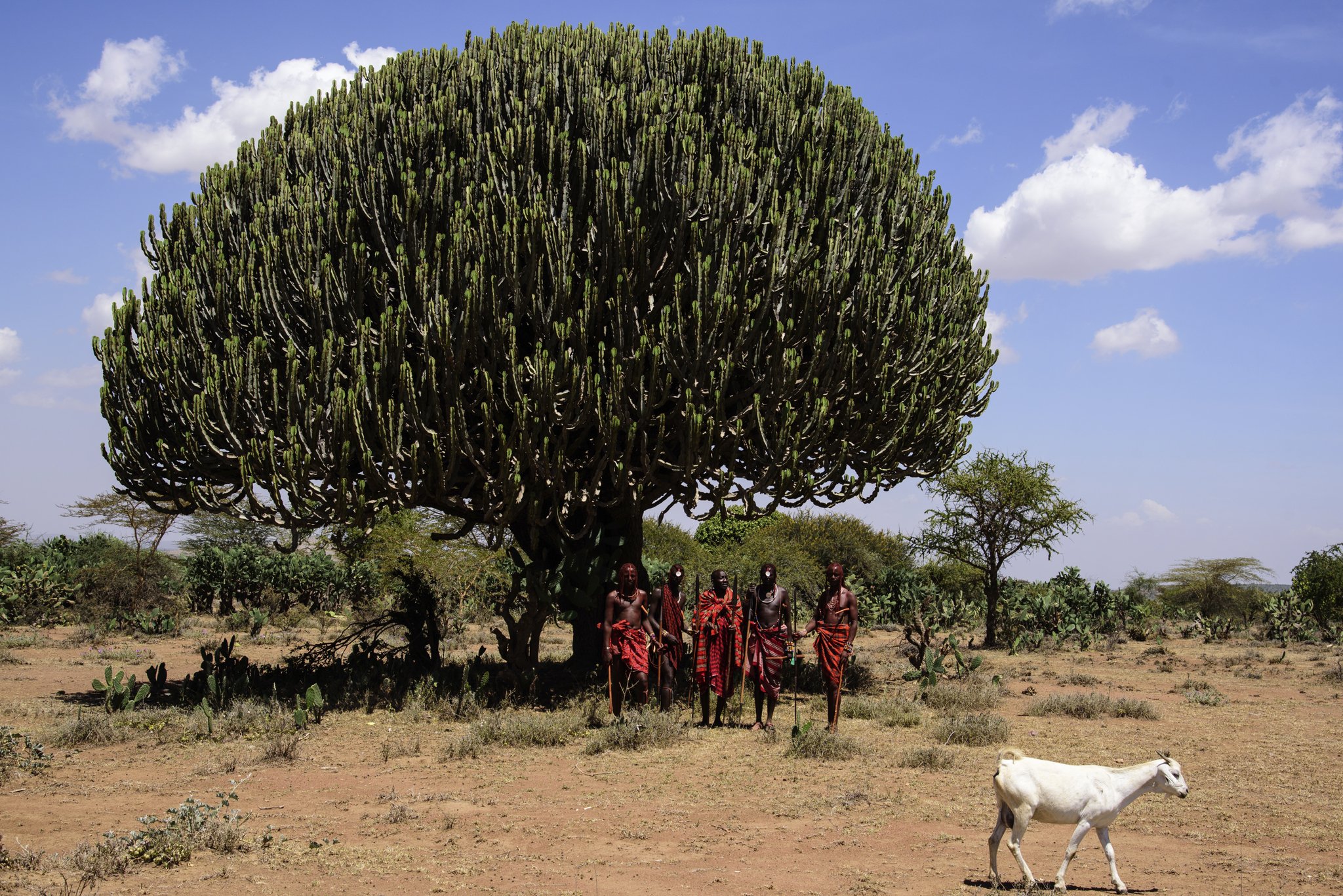This project will increase bee presence to generate locally produced honey for traditional medicine and ceremony, teach youth about the cultural meaning of honey and how to carry on the process for future generations, and support local projects such as traditional and holy tree plantings and organic food farming.
The Medungi Organization will:
- Engage professional beekeepers to prepare for success and eventual transition to local women.
- Prepare 26 hives populated with bees from 8 catcher boxes.
- Document sacred, medicinal, and nutritional uses of honey including chants and prayers.
- Distribute honey to the community.
- Establish a ceremonial and agricultural center for exhibitions and training, including workshops for Maasai to start their own hives.
- Facilitate honey sales to support health and education.
- Prepare technical and financial reports, and systemize experiences to be duplicated.
Our vision is for 100+ Maasai families to be spiritually, nutritionally, culturally, and economically empowered, with sustainable management of local resources to ensure cultural preservation for future generations. This will enhance the respect of their culture, economy, and environment, and help them integrate into surrounding economies without losing their identity in the face of global and local challenges from land rights issues, globalization, climate change, and deforestation.
- PLANNING: Engaging vendors, purchasing equipment, training women to ensure the success of the effort
- SET UP: Installing hives, capturing bees and populating hives, establishing the roles and responsibilities for doing the work
- MAINTENANCE: Daily/weekly monitoring, inspection, maintenance, coaching for project leaders and workers
- HARVESTING: at 5 months and 9 months, bottling, distribution, sales
- COMMUNITY ENGAGEMENT: Ceremonial events, youth education sessions, visitor programs in conjunction with the Maji Moto Maasai Cultural Camp
- REPORTING: Ongoing financial and operational tracking, Grantor reports, publicizing in fundraising network to engage other investments in expanding the program
Difficulties:
As the world changes and new risks such as COVID-19 arise, the following challenges create an urgency that makes this project necessary.
- Government land demarcation in recent years causes tree cutting, commercial land use, disrespect of nature, and reduction in a nomadic lifestyle. Maasai have always lived with minimal environmental impact, protecting nature, which would be continued with this project.
- School attendance is mandatory, requiring permanent homes rather than migrating for best grazing, water, bees, etc. Creating ways to continue traditional practices in more permanent locations is essential.
- COVID-19 restrictions and loss of jobs highlight the need for multiple income options. The familiar resource of honey provides personal sustenance and income and supports global interest in immunity and health.
- Maasai adults are often not “school educated”, but know about working within nature. Their expertise about bees and honey allows them to thrive amid encroachment by colonialism and other tribes wanting their land.
A person…
- is prepared to carry on and respect Maasai tradition.
- has the honey needed for food, healing and ceremony.
- learns new ways to meet their community needs in a changing world.
A family…
- has improved health and well being.
- is able to use beekeeping as a way to support their family while remaining in their native community.
A community…
- is reconnected to their Maasai culture.
- engages in conserving nature and wildlife, as Maasai have done for centuries.
- shares their rich heritage and stewardship of the environment with the world.
The community of approximately 1,000 Maasai people will benefit from:
- nutritional value of honey to address food security.
- Elders and medicine people having access to local honey for healing and ceremony.
- children learning about important cultural practices.
- preservation of the environment for global benefit.
The world has moved away from nature and the consequences are dire. Indigenous people can reconnect humans and nature through tangible benefits as well as educating future generations about the interconnectedness and power of nature in our lives. Forests are the lungs of the Earth, and bees are needed for forests to thrive. Sharing messages about the value of honey and what it can do for health and wellness will show people a way to reconnect with the natural way of a good life. And though it is one small bee population created, it is a contribution to global health.




